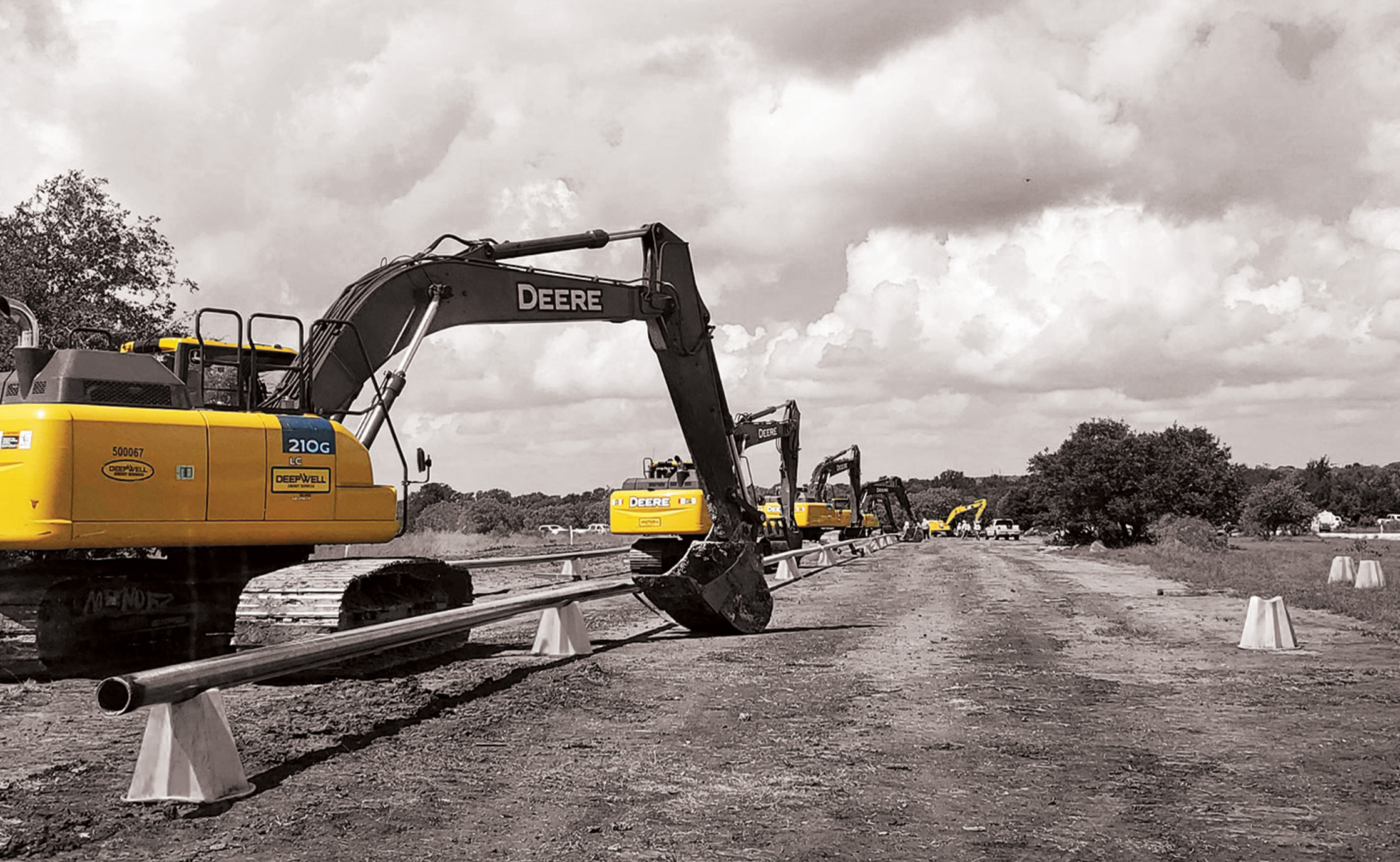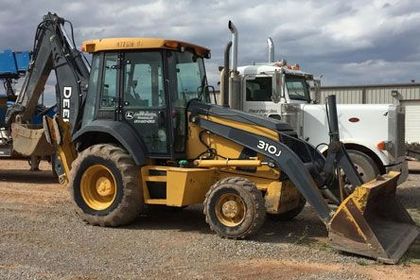Superior Oilfield Rentals oilfield: new solutions shaping production work
Wiki Article
A Comprehensive Guide to the Various Types of Oil Field Equipment and Pipeline Equipment Available
The oil and gas industry counts greatly on specific equipment for efficient extraction and transportation. Numerous sorts of equipment, from piercing rigs to storage space tanks, play essential functions in this complex process. Each tool offers distinct functions that add to overall functional success. Understanding these parts is necessary for any person associated with the sector. As the industry develops, so as well do the innovations that sustain it. What developments are on the horizon?
Drilling Rigs: The Foundation of Oil Exploration
Drilling rigs work as the necessary equipment in the domain of oil exploration, making it possible for firms to gain access to hydrocarbon reserves hidden deep below the Planet's surface. These rigs are available in different kinds, consisting of land rigs, offshore rigs, and mobile units, each designed to operate in specific environments. Equipped with sophisticated technology, drilling rigs can penetrate geological developments with precision, making sure efficient source extraction. The structural integrity and functional abilities of these rigs are crucial, as they should stand up to extreme problems and considerable pressures. The option of an exploration rig affects the overall job expense and timeline, making it an important consideration for oil companies looking for to enhance their expedition efforts and optimize productivity in their operations.Pumps: Vital for Fluid Activity
In the oil removal process, the duty of pumps is substantial, helping with the activity of fluids throughout different stages of manufacturing. Pumps are crucial for transporting petroleum, water, and other liquids from below ground storage tanks to the surface and after that via pipes to refineries. They can be found in various types, consisting of centrifugal, positive displacement, and submersible pumps, each offering details objectives based upon the fluid attributes and operational requirements. Centrifugal pumps are frequently used for their effectiveness in high-flow applications, while favorable variation pumps master managing thick fluids. The option of pump influences total efficiency, operational safety and security, and upkeep expenses. Proper choice and upkeep of pumps are vital for maximizing production and reducing downtime in oil area procedures.Shutoffs: Managing Flow and Pressure

Valves play an important function in managing the circulation and pressure of fluids within oil areas and pipes. Various sorts of shutoffs offer distinctive applications, each made to satisfy particular features basic for efficient procedure - Superior Oilfield Rentals. Comprehending the qualities and usages of these valves is important for optimizing system performance and safety
Sorts of Valves
Crucial elements in oil field operations, valves play an important function in controlling the flow and pressure of fluids within pipes and devices. Numerous types of valves are utilized to satisfy the diverse needs of oil and gas manufacturing. Usual types include entrance shutoffs, which give a straight-line flow and marginal pressure decline; world shutoffs, understood for their throttling capabilities; and round shutoffs, acknowledged for their quick on/off control. Additionally, check shutoffs protect against heartburn, while butterfly valves use a lightweight remedy for controling flow. Each valve type is developed with particular products and arrangements to withstand the severe conditions typically discovered in oil areas, making certain integrity and efficiency in procedures. Comprehending these types is essential for reliable system monitoring.Valve Applications and Functions
While numerous kinds of valves serve distinctive purposes, their key applications focus on regulating circulation and stress within oil and gas systems. Valves such as gate, world, and round shutoffs control fluid activity, making certain peak performance and safety and security. Entrance valves are commonly used for on/off control, providing marginal circulation resistance. World valves, on the various other hand, offer precise circulation regulation, making them suitable for throttling applications. Sphere valves are favored for their quick operation and limited sealing abilities. On top of that, stress relief valves are critical for stopping system overpressure, guarding tools integrity. Overall, the suitable selection and application of valves boost functional effectiveness, making sure the reliable transport of oil and gas via pipelines and processing facilities.Compressors: Enhancing Gas Transport
Compressors play a vital role in the efficient transportation of gas, ensuring that it moves smoothly with pipes over fars away. These gadgets raise the stress of natural gas, permitting it to get over rubbing and altitude adjustments within the pipeline system. Furthermore, compressors assist in the balancing of supply and need, suiting fluctuations in consumption and production rates. Numerous sorts of compressors are used in the industry, consisting of centrifugal, reciprocating, and rotary screw compressors, each offering distinctive benefits based on the operational needs. Routine maintenance of these compressors is essential to take full advantage of effectiveness and minimize downtime, eventually adding to a trusted gas transport network. Their critical function underscores the relevance of compressors in the overall oil and gas facilities.Storage Tanks: Safe and Reliable Liquid Monitoring
Reliable transportation of all-natural gas depends on various sustaining systems, one of which is the appropriate administration of storage tanks. These containers play a necessary function in safely containing fluids, guaranteeing that operational effectiveness is preserved while lessening environmental risks. Created from sturdy products, they are made to stand up to high pressures and corrosive components. Appropriately sized and tactically located, storage space tanks assist in the smooth flow of natural gas and various other liquids, stopping bottlenecks in supply chains. Regular maintenance and surveillance are crucial to identify leaks or structural issues, promoting safety and compliance with regulative standards. Ultimately, the efficient administration of storage space containers is crucial for the general integrity and integrity of the oil and gas sector's fluid handling systems.
Pipeline Solutions: Framework for Transportation
Pipeline systems work as the foundation of the oil and gas sector, helping with the reliable transportation of hydrocarbons over substantial distances. These systems include different parts, consisting of pipelines, valves, pumps, and compressors, all carefully designed to ensure seamless flow. The products made use of in pipeline building and construction, often steel or high-density polyethylene, are picked for toughness and resistance to rust. Pipeline networks can span throughout land and water, linking production websites to refineries and warehouse. Furthermore, advanced technology allows real-time monitoring of flow prices and pressure degrees, enhancing operational effectiveness. The strategic placement of these pipes minimizes ecological impact check while making best use of resource accessibility, thereby playing an important function in meeting power needs around the world.Safety Equipment: Guaranteeing Worker and Environmental Defense
The procedure of pipeline systems, while vital for energy transport, also offers considerable safety and security difficulties for workers and the environment. Security devices plays a substantial duty in reducing these threats. Individual safety equipment (PPE) such as safety helmets, handwear covers, and non-slip footwear safeguards employees from physical threats. In addition, gas detection systems monitor for leaks, making certain that unsafe materials do not useful site pose a hazard to personnel or the surrounding ecosystem. Emergency situation closure systems are imperative for swiftly stopping procedures during a situation, protecting against potential calamities. Spill control products, including absorbents and barriers, are basic for reducing ecological effect. On the whole, buying all-inclusive security tools is critical for maintaining functional honesty and securing both employees and the setting in the oil and gas field.
Often Asked Inquiries
Exactly how Do I Select the Right Oil Field Equipment for My Job?
Selecting the right oil field devices involves reviewing task specifications, budget restraints, and functional demands. Take into consideration elements such as equipment integrity, compatibility with existing systems, and the vendor's track record to guarantee peak performance and safety and security.What Are the Maintenance Demands for Oil Field Equipment?
Upkeep needs for oil field tools include routine examinations, lubrication, and prompt fixings. Operators must likewise comply with producer standards, monitor performance metrics, and guarantee conformity with safety guidelines to boost durability top article and effectiveness.
Exactly How Can I Guarantee Conformity With Environmental Regulations?
To assure conformity with environmental guidelines, business need to conduct regular audits, carry out finest techniques, invest in training, keep appropriate paperwork, and stay updated on regulations (Superior rentals squeeze tools). Collaboration with environmental agencies can additionally improve adherence to lawsWhat Is the Average Life-span of Pipeline Equipment?
The average life expectancy of pipeline devices commonly varies from 20 to half a century, relying on variables such as worldly quality, ecological problems, and upkeep techniques. Regular inspections can considerably influence longevity and operational efficiency.How Do I Securely Deliver Oil Field Equipment to Remote Locations?
Delivering oil field devices to remote locations calls for cautious planning, consisting of path assessment, safeguarding licenses, using suitable lorries, and making sure security procedures are adhered to. Proper training and communication among teams are vital for effective transportation.Report this wiki page